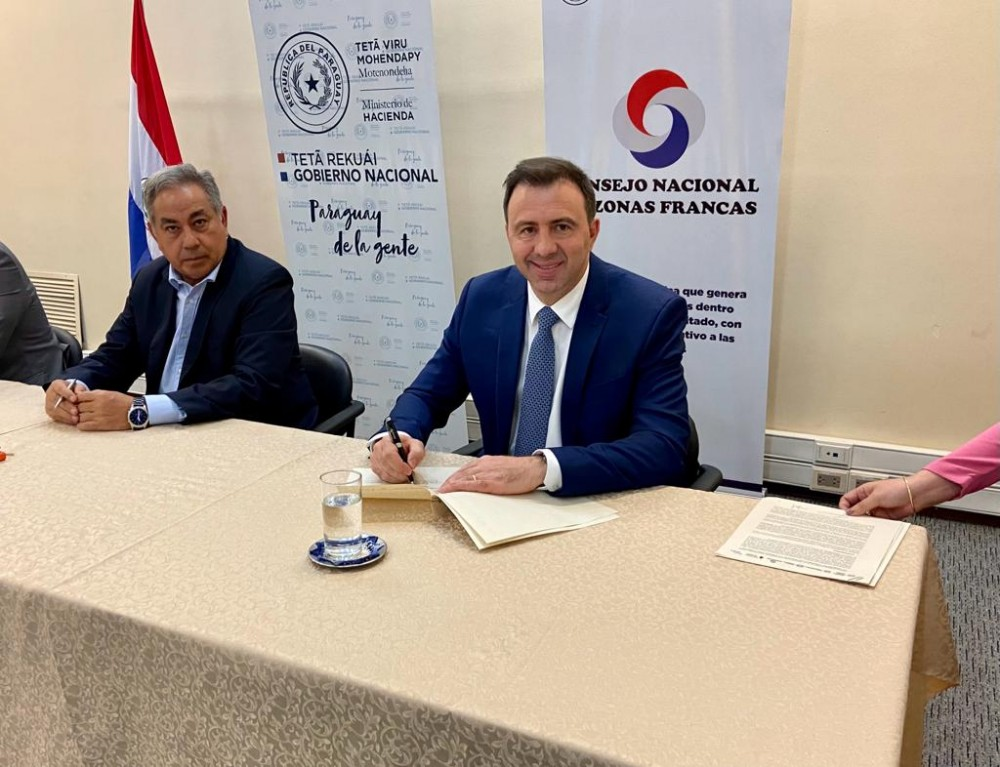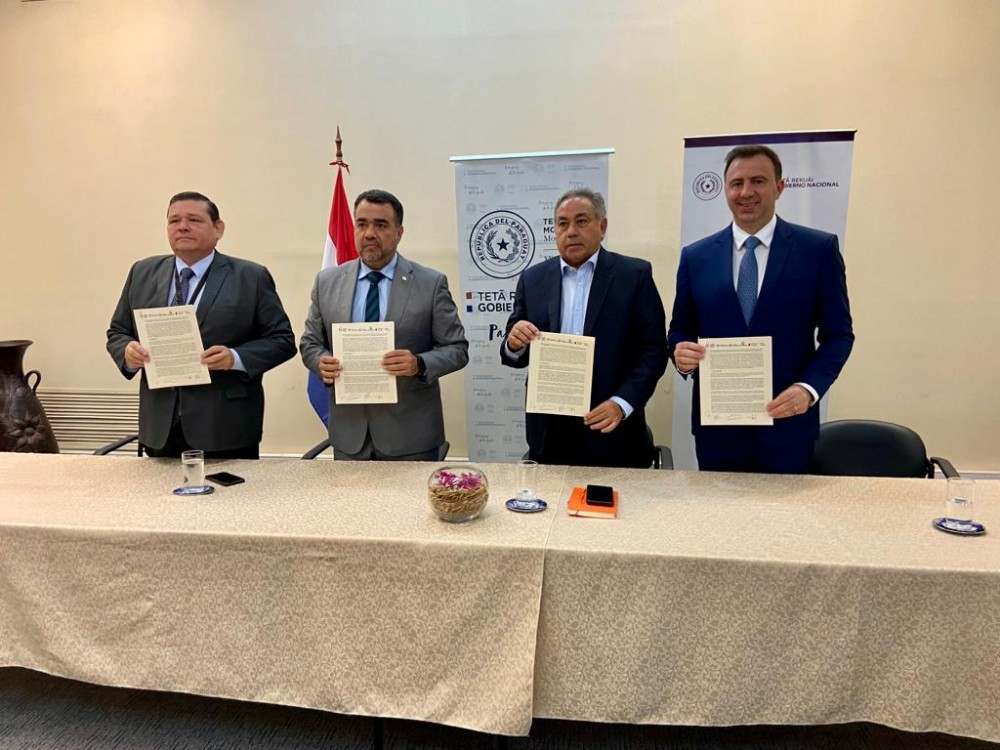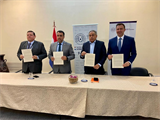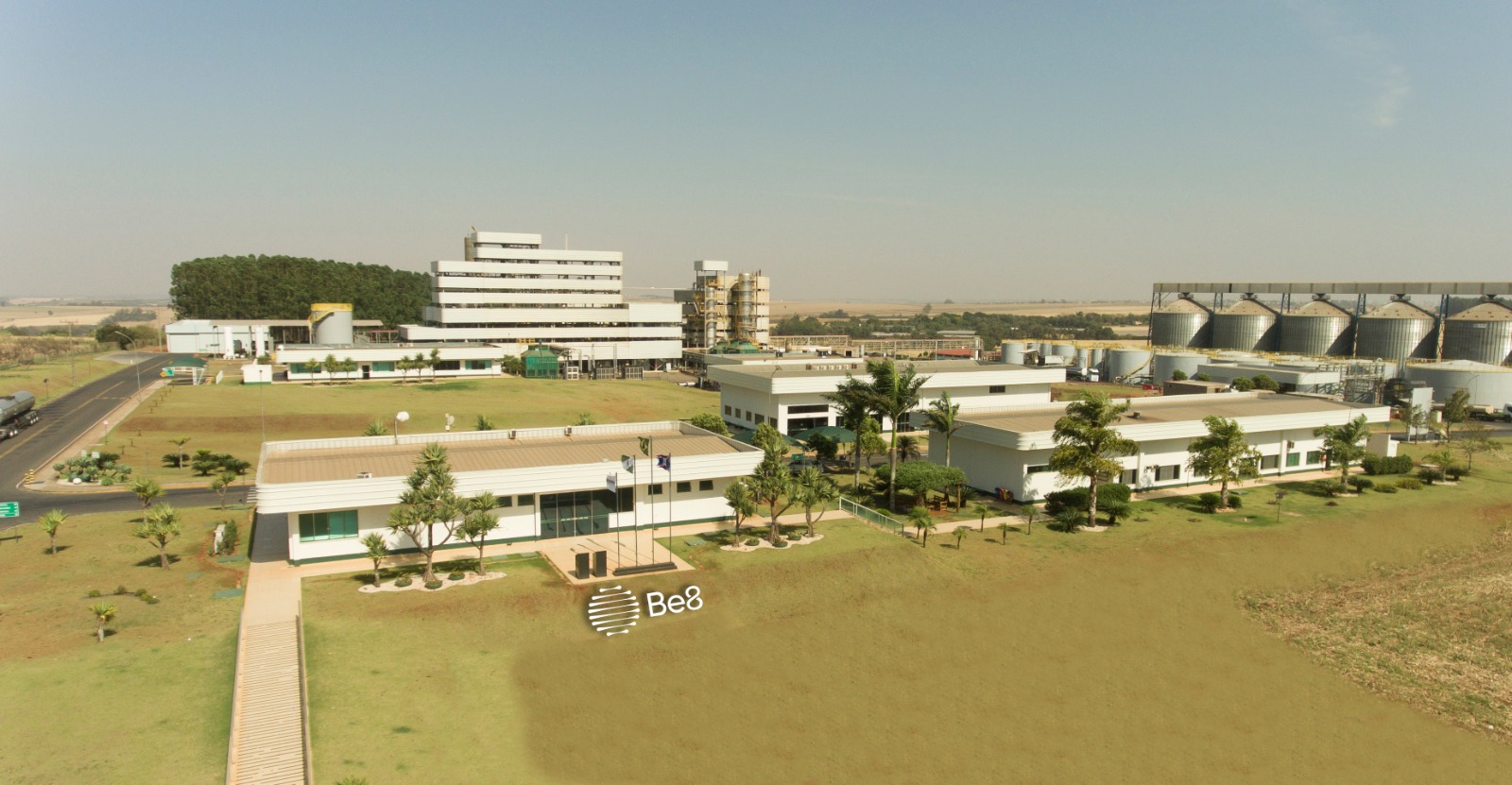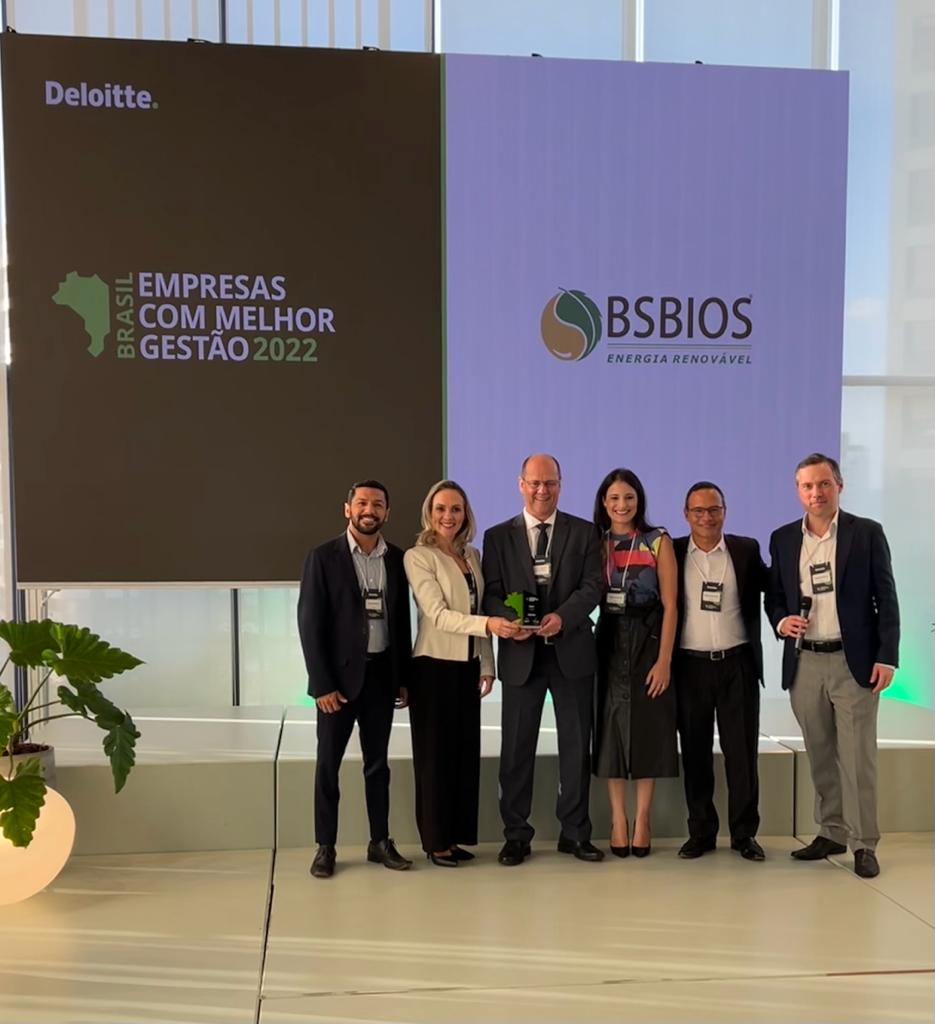BSBIOS signs Free Zone contract for Omega Green biorefinery with Paraguayan government
Commitment consolidates an environment of legal and economic certainty for the realization of investments and provides the necessary conditions for the export of biofuel
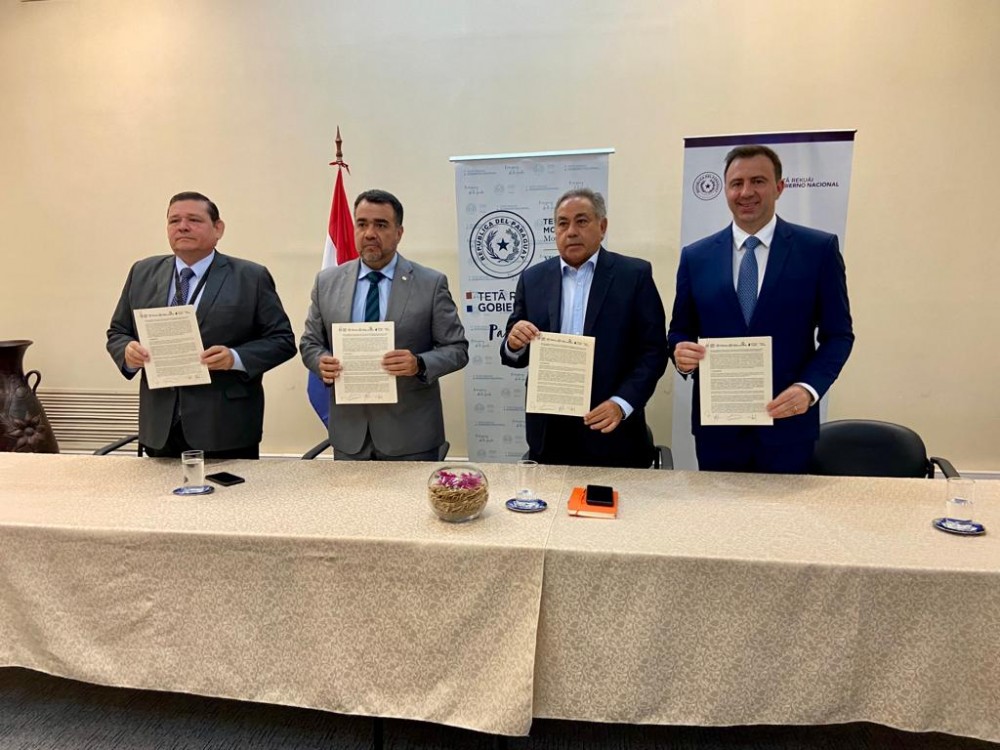 On Thursday (02/02) [,] was signed, in the Ministry of Finance of Paraguay, the act that signs the concession of Free Zone to the new land of the biorefinery Omega Green, located in Villeta, Paraguay. The document was signed by the Minister of Finance Óscar Llamosa Diaz, the Minister of Public Works and Communications Rodolfo Segovia, the Vice Minister of Industry of the Ministry of Industry and Commerce Francisco Ruiz Diaz and the president of BSBIOS Erasmo Carlos Battistella.
On Thursday (02/02) [,] was signed, in the Ministry of Finance of Paraguay, the act that signs the concession of Free Zone to the new land of the biorefinery Omega Green, located in Villeta, Paraguay. The document was signed by the Minister of Finance Óscar Llamosa Diaz, the Minister of Public Works and Communications Rodolfo Segovia, the Vice Minister of Industry of the Ministry of Industry and Commerce Francisco Ruiz Diaz and the president of BSBIOS Erasmo Carlos Battistella.
"Today, we have taken a fundamental step to move forward with the project after the acquisition of the new land for a larger area, with 384 hectares. Now, we can able to move on to other stages, "said the businessman.
The stages of the engineering project, the granting of the municipal construction license and the Paraguayan environmental licenses have already been completed. "The Free Trade Zone consolidates an environment of legal and economic security favorable to investments in the country and gives us the necessary conditions for the export of biofuel. Now we are looking to establish the necessary financing for the project," said Battistella.
"This project (Omega Green) aims to transform Paraguay into a 100% renewable energy producer. The advanced technology that places us as a world reference, will attract investments in human capital and higher value-added activities and help sustain our economic growth, not only in the place where the factory operates, but throughout the country. We value the commitment of investors, taking into account that they have continued this project so important for the national interest, despite the complex scenario of recent years."
Óscar Llamosa Diaz, Minister of Finance
"This construction is committed to the development of this region and the Villeta Free Trade Zone. It is a satisfaction this government to receive investments of this kind. Hopefully construction will begin soon.
Rodolfo Segovia, Minister of Public Works and Communications
"This is a project that offers us an important niche for certified soybean production. Paraguay is today in this intermediate stage of industrialization. Agro-industrial exports outstrip primary exports. We are in the transition from a rural economy to an agro-industrial economy. The Omega Green project will improve that. We celebrate an investment of this kind that will generate jobs and economic growth.
Francisco Ruiz Diaz, Deputy Minister of Industry at the Ministry of Industry and Trade
Free Trade Zone
The Free Trade Zone was determined by Presidential Decree No. 8376 of November 24, 2022, of Paraguayan President Mario Abdo Benítez. The document highlights the project's ability to boost foreign trade and add value to raw materials produced in Paraguay, such as animal fats, vegetable oils and waste oils, generate employment and bring state-of-the-art technology to the country.
The contract guarantees the maintenance of legal conditions of the project for a period of 30 years, renewable for another 30 years. The complex was considered "of national interest" by the government of Paraguay due to its social and economic importance to the country. It will bring gains to the economy of more than $8 billion over 10 years, contributing to the balance of trade. It will generate 3,000 direct jobs in the construction phase and about 2,400 direct and indirect jobs when it goes into operation.
The land is in Villeta, 45 kilometers from Asunción, the capital of Paraguay. The area has the advantage of making a border of 220 meters, on the one hand, with the highway (Rutta Villeta-Alberdi) and, on the other, with a larger strip of bank of the Paraguay River. Another advantage is to be located about 100 meters from a power substation (Substation Buey Rodeo).
There is also the opportunity to house future expansions, with a wider space for the development of the port, in addition to allowing to receive strategic partners who can invest in related activities. The proximity to the asphalted highway and the power substation also reduces operating costs for the project. The land will have a Permanent Preservation Area (APP), maintaining the identity of the current biome.
Infrastructure works for the establishment of internal and access roads, as well as all the fencing of the area that will house the project have already been carried out. The civil construction of the plant should start in 2023 and has a completion period of up to 3 years. The production of biofuels is planned for the year 2025.
Omega Green
The Omega Green biorefinery will have the capacity to produce 20,000 barrels/day of advanced biofuels, such as HVO (green diesel), SAF (sustainable aviation fuel) and Naphtha Verde (raw material used in the chemical industry for the production of green plastic). This biofuel is less polluting and contributes to the reduction of greenhouse gas emissions and [,] to the achievement of global decarbonization goals, such as the Paris Agreement.
BSBIOS La Paloma
Earlier this year, BSBIOS acquired the biodiesel and soybean crusher plant at the La Paloma Industrial Complex, which will be renamed BSBIOS La Paloma. The decision reaffirms the position of diversifying investments, internationalizing the company and advancing in certified raw materials and renewable energies, reinforcing the commitment to the sustainable development of Paraguay and to meeting the growing demand for biodiesel in the region.
Battistella took the opportunity to reinforce, together with the ministers, the importance of the Manifesto in Defense of Biofuels, launched at the end of last year, which involved the associations of Paraguay, Brazil, Argentina, Uruguay and Colombia, and called for the increase of the biodiesel mixture in the country. "Together with the Cámara Paraguaya de Biocombustibles y Energías Renovables (BIOCAP), our plea is for Paraguay to move to a 5% blend, as is already practiced in other countries in the region," said Battistella. "Sustainable development in South America generates local employment and preserves the environment, putting the region at the same level of advancement that we can recognize in the United States market," added the president of BSBIOS.

